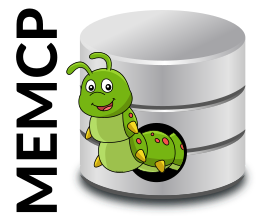Sequence Compression in In-Memory Database yields 99% memory savings and a total of 13%
One of the most interesting compression techniques on columnar storages is sequence compression.
Read MoreAccessing MemCP via scheme
MemCPs native access technology is the scheme scripting language.
Read MoreWriting a SQL parser in scheme
Functional programming languages are a neat tool to write parsers, especially when equipped with a pattern matching mechanism.
Read MoreHow to benchmark a SQL database
To compare databases against each other, a benchmark like TPC-H is used.
Read MoreWhen the benchmark is too slow… (golang http server performance)
Just a shmankerl from the daily life of a developer.
Read MoreOn Compressing NULL values in bit-compressed Integer Storages
Usually, databases store NULL values in form of bitmasks. In this case, each value eats up 1 bit for the possibility to become NULL. I will prove that we can do better.
Read Morememcp: Eine OpenSource hochperformante Spaltenbasierte In-Memory-Datenbank als Alternative zu proprietären analytischen Datenbanken
In den letzten 13 Jahren gab es eine Menge Innovationen im Bereich spaltenbasierte Datenbanken. Zu verdanken ist das vor allem einem deutschen ERP-Hersteller, der sich entschieden hat, sich vom Datenbank-Marktführer abzusetzen und sein eigenes Ding zu machen. Es wurde zu einer Erfolgsstory. Zeit, dass OpenSource nachzieht.
Read MoreMemory-Efficient Indices for In-Memory Storages
Most databases implement indices as a kind of tree. I will show you that columnar storages can do even better.
Read MoreHow In-Memory Compression Affects Performance
Modern computers are fast. So fast that there is a huge gap between computing speed and memory bandwith and latency in memory-heavvy applications.
Read More








